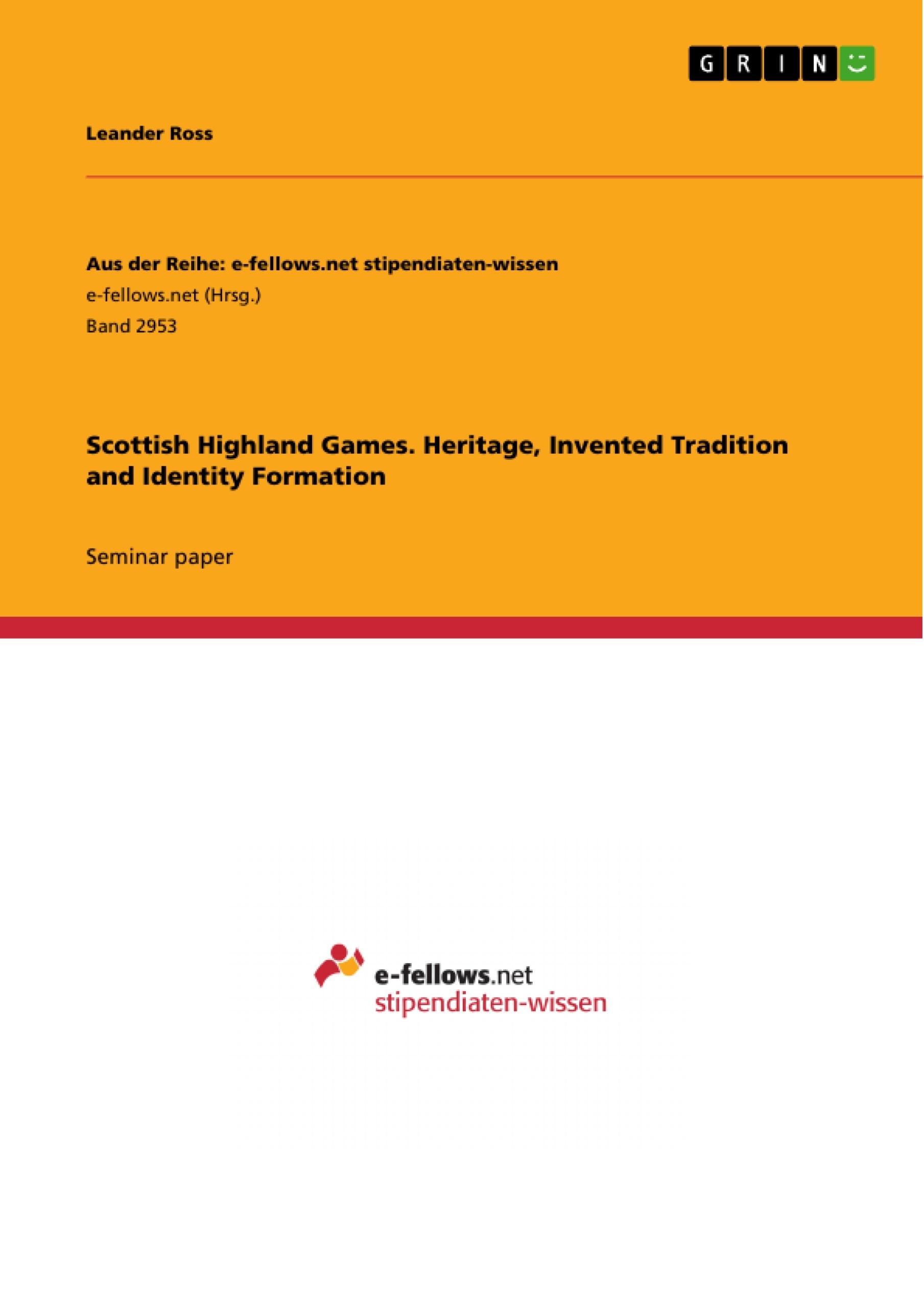On 20th August 2017, the small village Wittental in the rural countryside of the Black Forest celebrated the tenth anniversary of hosting their traditional Highland games. According to a newspaper announcement the event was firstly introduced in 1999 and ever since has been organised by the local community every second year, offering sport competitions like the ‘Heavies’ as well as music, food and Scottish Whisky tasting. But why is an ancient Scottish tradition practised in the South of Germany? Is it an example of the Highland games being used by Scottish people to identify with their origins and Scotland? Or is it simply an invented marketing idea to promote a sport event of a remote Black Forest village aiming at attracting visitors through a well-known name?
This paper will concentrate on the Scottish Highland games in Scotland as well as in other parts of the world. Despite the fact that they are separated from their original background and could be seen as an invented tradition by the British, there is reason to classify them as heritage as well. Albeit their hybrid form between invented tradition and heritage, Scottish people all over the world hold on to the Scottish Highland games as they have the ability to create the basis for a common identity. To explain this, in the following the ideas of ‘Heritage’ and ‘Invented Tradition’ will shortly be introduced, a historic background of the event’s development throughout the centuries will be given and all this information will be applied in an analysis of the Highland games.
Inhaltsverzeichnis (Table of Contents)
- Introduction
- Defining Heritage, Invented Tradition and the Development of the Highland Games throughout the Centuries
- A Definition of Heritage
- The Invention of Tradition
- History of the Scottish Highland Games
- The Highland Games between Heritage and Invented Tradition
- Aspects of Heritage
- Aspects of Invented Tradition
- The Highland Games: a Hybrid of Heritage and Invented Tradition
- Identity Formation
Zielsetzung und Themenschwerpunkte (Objectives and Key Themes)
This paper aims to examine the nature of the Scottish Highland Games, exploring their origins, evolution, and influence on the formation of Scottish identity. It delves into the concept of heritage and invented tradition, analyzing how these concepts intersect within the context of the Highland Games. The paper further explores the role of the games in creating and maintaining a sense of community and national identity, both in Scotland and beyond.
- The complex relationship between heritage and invented tradition in the context of the Highland Games.
- The historical development of the Highland Games and their transformation from a rural tradition to a global spectacle.
- The role of the Highland Games in the formation and representation of Scottish national identity.
- The cultural significance of the Highland Games as a symbol of tradition and cultural heritage.
- The potential for the Highland Games to be adopted and adapted by other cultures and societies.
Zusammenfassung der Kapitel (Chapter Summaries)
The introduction sets the stage by examining the contemporary manifestation of the Highland Games in Wittental, Germany. It questions the motives behind the adoption of a seemingly Scottish tradition in a German village and introduces the concept of invented tradition as a potential explanation. The chapter explores the potential for the Highland Games to serve as a tool for creating group identity and examines George Orwell’s concept of controlling the past and its relevance to the Highland Games.
Chapter two dives deep into the definitions of heritage and invented tradition, providing a historical context for their development and current usage. It highlights the distinct characteristics of each concept and introduces the complexities of their interaction in relation to the Highland Games. The chapter concludes with a discussion of the Heritage Debate and the potential for the misuse of heritage for political purposes.
Chapter three delves into the history of the Highland Games, tracing their evolution from their origins in Scotland to their contemporary global presence. It analyzes the elements of both heritage and invented tradition within the games, exploring their contribution to the formation of a distinct Scottish identity. The chapter concludes by examining the hybrid nature of the Highland Games, which combines elements of both heritage and invented tradition.
Schlüsselwörter (Keywords)
The key themes and concepts of this paper include heritage, invented tradition, Scottish Highland Games, national identity, cultural identity, tradition, history, social events, and community.
- Quote paper
- Leander Ross (Author), 2017, Scottish Highland Games. Heritage, Invented Tradition and Identity Formation, Munich, GRIN Verlag, https://www.grin.com/document/448487




